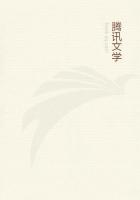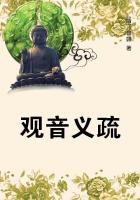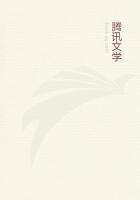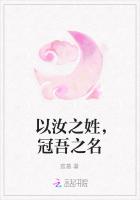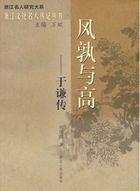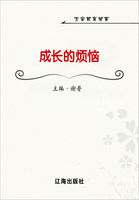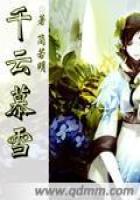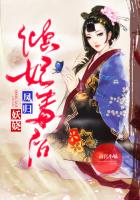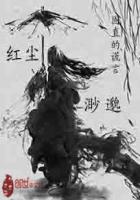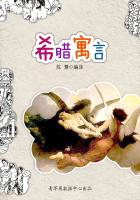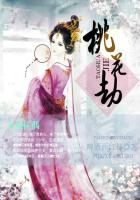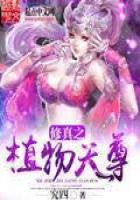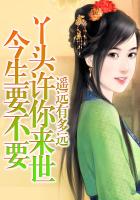Having thus learned to subordinate his story to an idea, to make his art speak, he went on to teach it to say things heretofore unaccustomed. If you look back at the five books of which we have now so hastily spoken, you will be astonished at the freedom with which the original purposes of story-telling have been laid aside and passed by. Where are now the two lovers who descended the main watershed of all the Waverley novels, and all the novels that have tried to follow in their wake? Sometimes they are almost lost sight of before the solemn isolation of a man against the sea and sky, as in LES TRAVAILLEURS; sometimes, as in LES MISERABLES, they merely figure for awhile, as a beautiful episode in the epic of oppression; sometimes they are entirely absent, as in QUATRE VINGT TREIZE. There is no hero in NOTRE DAME: in LES MISERABLES it is an old man: in L'HOMME QUI RIT it is a monster: in QUATRE VINGT TREIZE it is the Revolution. Those elements that only began to show themselves timidly, as adjuncts, in the novels of Walter Scott, have usurped ever more and more of the canvas; until we find the whole interest of one of Hugo's romances centring around matter that Fielding would have banished from his altogether, as being out of the field of fiction. So we have elemental forces occupying nearly as large a place, playing (so to speak) nearly as important a ROLE, as the man, Gilliat, who opposes and overcomes them. So we find the fortunes of a nation put upon the stage with as much vividness as ever before the fortunes of a village maiden or a lost heir; and the forces that oppose and corrupt a principle holding the attention quite as strongly as the wicked barons or dishonest attorneys of the past. Hence those individual interests that were supreme in Fielding, and even in Scott, stood out over everything else and formed as it were the spine of the story, figure here only as one set of interests among many sets, one force among many forces, one thing to be treated out of a whole world of things equally vivid and important. So that, for Hugo, man is no longer an isolated spirit without antecedent or relation here below, but a being involved in the action and reaction of natural forces, himself a centre of such action and reaction or an unit in a great multitude, chased hither and thither by epidemic terrors and aspirations, and, in all seriousness, blown about by every wind of doctrine. This is a long way that we have travelled: between such work and the work of Fielding is there not, indeed, a great gulph in thought and sentiment?
Art, thus conceived, realises for men a larger portion of life, and that portion one that it is more difficult for them to realise unaided; and, besides helping them to feel more intensely those restricted personal interests which are patent to all, it awakes in them some consciousness of those more general relations that are so strangely invisible to the average man in ordinary moods. It helps to keep man in his place in nature, and, above all, it helps him to understand more intelligently the responsibilities of his place in society. And in all this generalisation of interest, we never miss those small humanities that are at the opposite pole of excellence in art; and while we admire the intellect that could see life thus largely, we are touched with another sentiment for the tender heart that slipped the piece of gold into Cosette's sabot, that was virginally troubled at the fluttering of her dress in the spring wind, or put the blind girl beside the deformity of the laughing man. This, then, is the last praise that we can award to these romances. The author has shown a power of just subordination hitherto unequalled; and as, in reaching forward to one class of effects, he has not been forgetful or careless of the other, his work is more nearly complete work, and his art, with all its imperfections, deals more comprehensively with the materials of life than that of any of his otherwise more sure and masterly predecessors.
These five books would have made a very great fame for any writer, and yet they are but one facade of the monument that Victor Hugo has erected to his genius. Everywhere we find somewhat the same greatness, somewhat the same infirmities.
In his poems and plays there are the same unaccountable protervities that have already astonished us in the romances.
There, too, is the same feverish strength, welding the fiery iron of his idea under forge-hammer repetitions - an emphasis that is somehow akin to weaknesses - strength that is a little epileptic. He stands so far above all his contemporaries, and so incomparably excels them in richness, breadth, variety, and moral earnestness, that we almost feel as if he had a sort of right to fall oftener and more heavily than others; but this does not reconcile us to seeing him profit by the privilege so freely. We like to have, in our great men, something that is above question; we like to place an implicit faith in them, and see them always on the platform of their greatness; and this, unhappily, cannot be with Hugo. As Heine said long ago, his is a genius somewhat deformed; but, deformed as it is, we accept it gladly; we shall have the wisdom to see where his foot slips, but we shall have the justice also to recognise in him one of the greatest artists of our generation, and, in many ways, one of the greatest artists of time. If we look back, yet once, upon these five romances, we see blemishes such as we can lay to the charge of no other man in the number of the famous; but to what other man can we attribute such sweeping innovations, such a new and significant presentment of the life of man, such an amount, if we merely think of the amount, of equally consummate performance?



